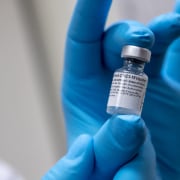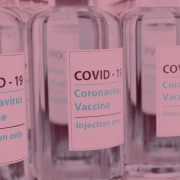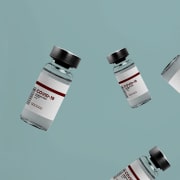|
Getting your Trinity Audio player ready...
|
Transparency has always been the keystone in the fight against corruption for without it, the corrupt continue their misdeeds unimpeded. With it, they have nowhere to hide.
The Covid-19 global pandemic presented a golden opportunity for looting, and lack of transparency continues to enable it.
A new report, published today by Transparency International and the University of Toronto, reveals that opacity and secrecy in the Covid-19 vaccine trials programme threatens the success of the global response to the pandemic.
For Whose Benefit? analyses the development and sale of the world’s top 20 Covid-19 vaccines. Companies under scrutiny include AstraZeneca, Pfizer/BioNTech, Johnson & Johnson, Novavax, and Moderna. Detailed analysis of data emanating from 86 clinical trials and nearly 200 contracts for vaccine procurement, up to March 2021, reveals “a pattern of poor transparency and a disturbing trend of governments censoring key details of their orders from drug companies”.
Because transparency is vital if the public is to trust that the process is safe and ethical, everything hinges on that level of trust being high – this will lead to confidence in the vaccination programme and willingness to participate. Furthermore, clinical trial transparency is the only way to monitor the safety and efficacy of vaccines and is a key safeguard against selective reporting of results or manipulation of data.
“Given the huge amounts of public money invested in research and development around the world, citizens have the right to know everything about the vaccines their taxes helped to fund,” said Jonathan Cushing, head of Transparency International’s Global Health Programme.
Key findings
The report reveals a disturbing trend of poor transparency in clinical trials as well as in contracting for the supply of vaccines. This is highlighted by:
- The incoherent global clinical trial transparency policy landscape. Six vaccines – or 30% of the total – are being made by developers based in countries that do not align with best practice and require the reporting of clinical trial summary results within 12 months of trial completion.
- Poor sharing of vaccine clinical trial protocols, which were shared for only 12% (10) of the trials under scrutiny.
- The frequent use of media to announce clinical trial results without the accompanying publication of the associated data analysis. Of the 45% of trials whose results had been announced, a worrying 41% had provided only top-level results via a press release or press conference, with the full data not made available for media scrutiny or academic review and thus facilitating misinformation and misunderstanding.
- Extremely low publication of contracts worldwide. Of the 183 agreements for the purchase of 12 different COVID-19 vaccines which have been concluded between 75 buyers and 13 suppliers globally, only 6% (13) of these contracts are publicly available. Out of these 13 contracts, 11 were published through official channels and the other two were unofficially leaked.
- Significant redactions in the published contracts. Ten out of the 11 formally published contracts were published with a high number of redactions, which often blocked out information of key public interest, such as the total cost paid, the price per dose, and delivery timetables. Only one contract, published by the Dominican Republic, included no redactions.
- The variable pricing of vaccines and extensive indemnification clauses, underlining the need for more transparency in these areas. For the Oxford/Astra-Zeneca-developed vaccine, the report notes, upper-middle income economies like South Africa are paying an average of 25% more per dose than high income economies like the European Union.
Recommendations
Transparency International Global Health calls on national governments to adopt and enforce legislation requiring the pre-registration of all clinical trials and the publication of summary results within 12 months of their completion. All governments that have bought vaccines should also follow the lead of the US and publish their contracts.
Vaccine developers must publish their clinical trial protocols on a publicly accessible registry (if they have not done so already). Developers should also only use media to announce clinical trial results in tandem with data analysis published in a peer-reviewed medical journal, trial registry or as a pre-print article.
In the absence of full publications of contracts by buyers, suppliers should release the full extent of its agreed-upon indemnification clauses, if agreed to by the buyer. Until this happens, they will be unable to sufficiently curtail lingering concerns of “bullying” of upper-middle income economies for more extensive indemnity clauses.
The World Health Organization should develop a toolkit for pandemic vaccine agreements, complete with template clauses and guidance on good practice.
Transparency engenders public trust
For months now, Corruption Watch has been engaging with National Treasury on this very matter. In January 2021 we raised concerns about the threat of corruption risks in the procurement and distribution of Covid-19 vaccines in South Africa.
But long before then we had expressed concerns that corruption would hinder the response to the pandemic. And in March this year we reiterated, in a paper researched and authored by Stellenbosch University law professor and public procurement specialist Prof Geo Quinot, that: “Public trust is undoubtedly a major factor in the success of any mass Covid-19 vaccination programme … transparency in government’s vaccination programme is also essential for the very success of the programme, since without transparency there cannot be public trust.”








